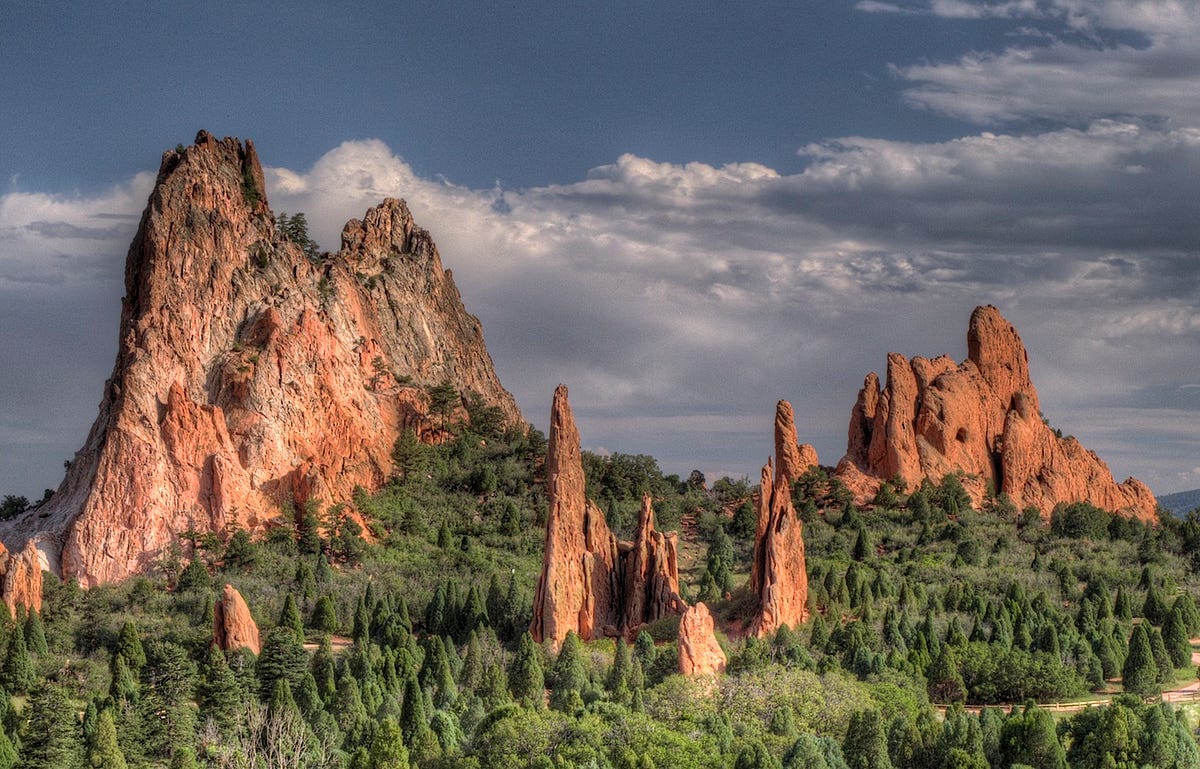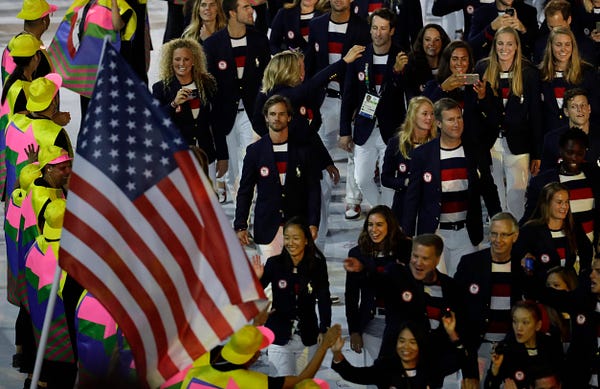U.S. Olympic athletes fight back against efforts to sell America’s public lands
Modern pentathlete Margaux Isaksen is the latest in a string of American Olympic athletes to raise her voice to declare the importance of national public lands and to express concern about a right-wing effort to transfer them out of public ownership.
“I have a deep connection with American public lands,” said Isaksen in an interview with ThinkProgress. “It formed who I am as a person and instilled a sense of national pride and closeness with the earth. As an athlete and American who has utilized these lands, I realize how important it is for the development of children and for future generations to have these public lands.”
Last week, Isaksen, along with Nevada Senator Harry Reid and Arizona Congressman Ruben Gallego, discussed the value of public lands and the need to keep them available for public use at a press conference on Capitol Hill. The event came after nearly a dozen Olympians have voiced their opinion on the importance of public lands to their training and national heritage.
I fear that if we sell our public lands for corporate use, we will lose a part of our identity as a country.
Isaksen, who grew up running, swimming, and playing in the Ozark National Forest in Arkansas, told ThinkProgress she still frequently trains in Garden of the Gods and other public lands in Colorado.
“Being able to enjoy untamed, protected land is our birthright as Americans,” said Isaksen in an op-ed last month. “America’s spirit of adventure, exploration, and self-reliance stems from our national commitment to preserve open space. I fear that if we sell our public lands for corporate use, we will lose a part of our identity as a country.”
This surge of Olympic support comes just as the trial kicks off for Ammon Bundy and the rest of the armed militants who overtook the Maheur National Wildlife Refuge in January and were charged with multiple federal offences. The group did so under the “county supremacy” argument that the U.S. government should not have authority over national public lands in the West and that public lands should be seized by the states or sold to private interests.
Such views are not unique to these anti-government extremists. A small group of anti-park politicians, led by Utah Congressman and House Natural Resources Chair Rob Bishop, have rallied around bills which aim to strip protections and give away public lands to the highest bidder. Rep. Bishop has been one of the most vocal members of the land seizure movement and has refused to condemn the actions of Bundy and the rest of the armed extremists.
“It has been particularly disturbing for me, as someone who serves on the Natural Resources committee, to see the consistent and constant attack on our public lands by Chairman Bishop,” said Congressman Gallego at the press conference with Isaksen. “[He] hopes not just to take them away, but also give them to some of these states who will use them in such an irresponsible manner that they would not be passed on as a generational gift.”
Olympians like Isaksen are raising their voice to show how out of touch these views are with the 83 percent of Americans who want their elected officials to support policies which protect and strengthen national parks and public lands.
Democratic presidential candidate Hillary Clinton has been the first on the presidential campaign trail to declare her support. More than 40 sportsmen’s organizations, led by the National Wildlife Federation, sent a letter requesting that the presidential candidates of four major parties publicly declare their stance on “public ownership of public lands.”
“Public lands must stay in public hands,” Secretary Clinton wrote in her response letter. “If I am so fortunate to serve as president, I will pursue policies that ensure wise stewardship, increase access and harness the immense economic potential of our outdoor economy.”
The other candidates have yet to respond, but the position stands in stark contrast to the GOP party platform adopted in July calling for the indiscriminate and immediate disposal of national public lands.
Source: by Jenny Rowland



